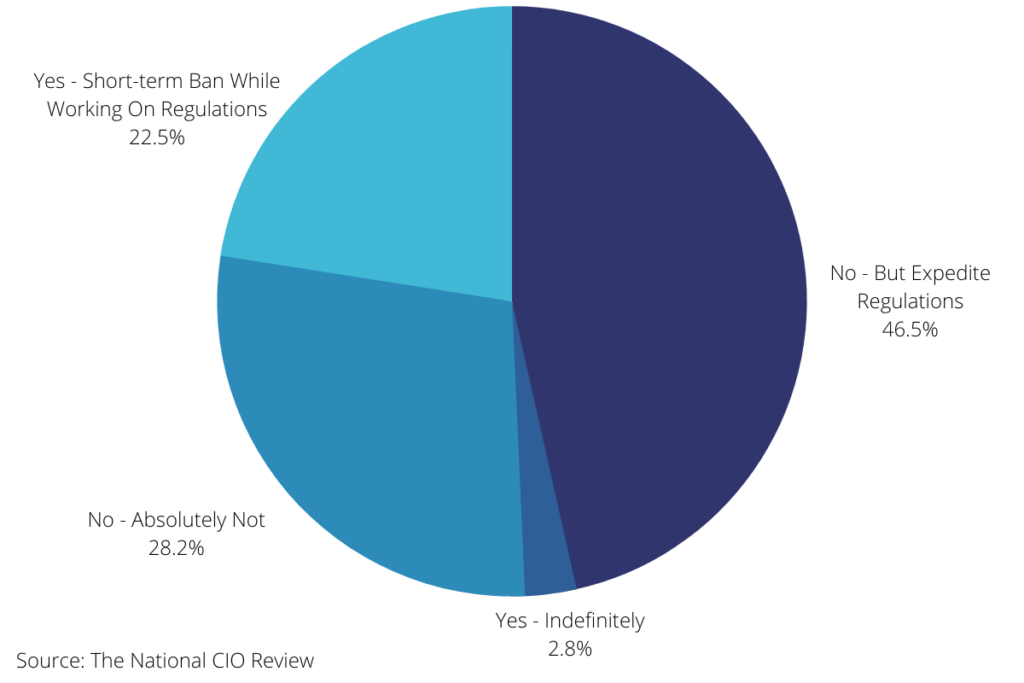Generative AI models including ChatGPT, have come under fire from critics who are calling for a US government ban due to potential risks. In April 2023, Italy became the first country to restrict ChatGPT, citing privacy concerns and the potential spread of misinformation, eventually restoring access later that month.
Proponents of ChatGPT say that a ban would be a mistake because the benefits of the technology far outweigh the risks. However, many on both sides of the debate agree there is a need for some regulation. OpenAI CEO Sam Altman testified before the Senate and stressed to Congress that government intervention will be critical to mitigating the risks of increasingly powerful AI systems.
The National CIO Review recently polled its readers to gauge their opinions on the topic.

46.5% of technology leaders acknowledge the potential risks associated with generative AI but stress that the technology should not be banned but that regulations are important and should be expedited.
Toni Pepper, Chief Information Technology Officer for the San Manuel Band of Mission Indians, thinks the United States should not ban ChatGPT. “The US should fast-track creating high-level regulations on the most concerning aspects of the technology including privacy and copyright infringements,” she said.

“The US should fast-track creating high-level regulations on the most concerning aspects of the technology including privacy and copyright infringements.”
Toni Pepper, Chief Information Technology Officer
28.2% of respondents believe that ChatGPT should not be banned nor regulated. Many technology leaders do not see AI as a threat but rather as a resource. They are optimistic about the potential benefits of generative AI and do not see any reason to ban it.
22.5% are in favor of a short-term ban on ChatGPT while the U.S. government works on regulations. This group acknowledges the potential risks associated with the technology and believes that taking action to mitigate those risks is necessary. However, they also understand that outright banning the technology may not be feasible and that regulations need to be put in place before it can be safely used.
“The technology is still maturing and has tremendous potential to advance society in a way that the iPhone did when it was launched years ago,” said Lonnie Snyder, Chief Information Technology Officer for the 2026 Special Olympics USA Games. “We don’t know how much we are going to use it yet, but it will change our lives.”

“The technology is still maturing and has tremendous potential to advance society in a way that the iPhone did when it was launched years ago…”
Lonnie Snyder, Chief Information Technology Officer
Only 2.8% of respondents believe that ChatGPT should be banned indefinitely, indicating that most technology leaders are against a complete ban on generative AI.
There is no doubt that ChatGPT and generative AI has caused a revolution, reaching far beyond technology into the classroom, the boardroom, the halls of government, and social media. While most technology leaders oppose a total ban, a similar majority support regulations and further investigation into AI as it develops, and for good reason, as privacy concerns cloud the technology.







